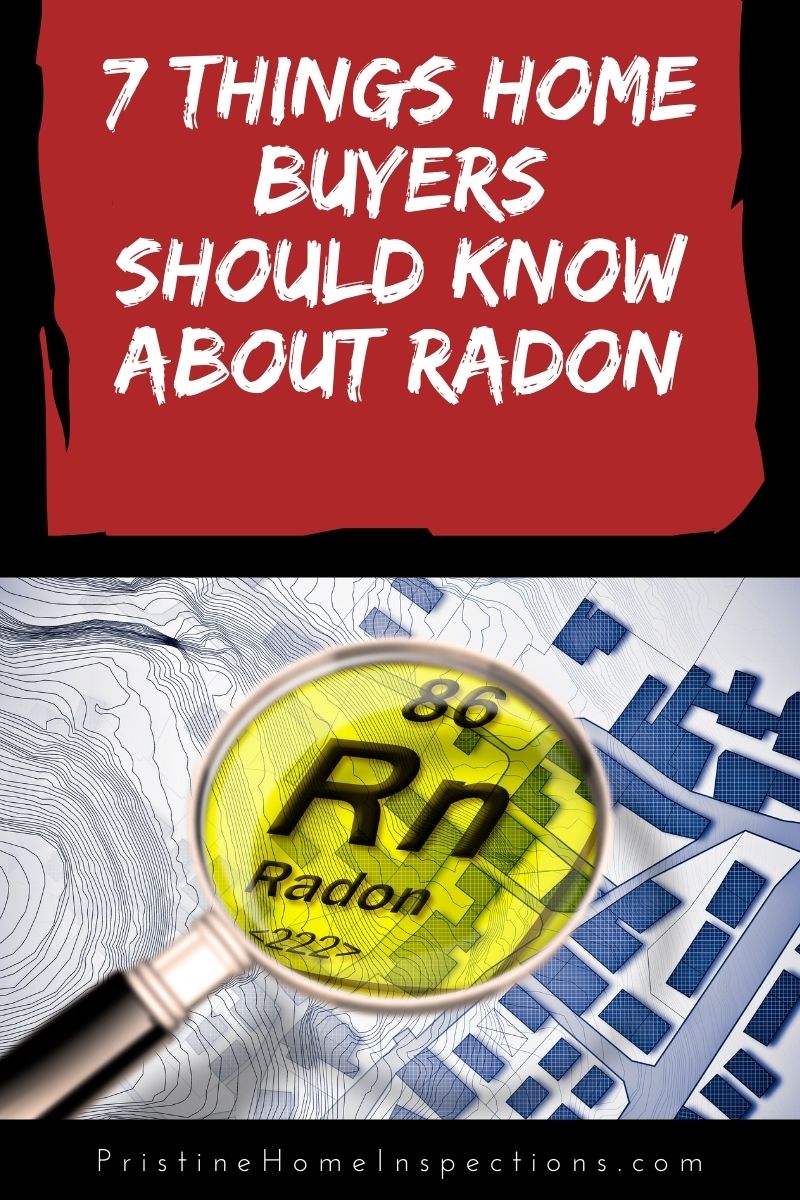It is being talked about more and more, but there are still many homeowners and buyers that do not know what radon is and that it can be a potential issue if found in your home. You can’t see, smell, or taste radon when it is present in your home, but it has been found to be the leading cause of lung cancer says the National Cancer Institute.
Finding radon in a home, though important, does not need to be a deal-breaker in a home purchase. Here is what you should know about radon gas when it comes to searching for and purchasing a home.
What is Radon Gas?
Radon gas is a result of radioactive materials such as uranium and thorium breaking down underground. As the radioactive substances deteriorate, they release radon gas which works its way up to the ground surface and out into the air we breathe. Radon becomes very diluted in outdoor environments that it does not pose a threat to human health when outside. Inside of a structure, it can become concentrated and be a larger cause for concern. Every area of the United States has radon gas emissions, but some areas have higher levels than others.
Why It is Important to Check Radon
Radon is harmless in low levels found outdoors, when it is being released into a home it can be trapped and create high enough levels to put the people residing in the home at risk. Radon is measured in what is called picocuries per liter (abbreviated: pCi/L). The Environmental Protection Agency (EPA) recommends that radon levels be no higher than 4pCi/L. Radon is a little heavier than oxygen (air) and can settle in basements and crawl spaces, but still be carried through an HVAC system to the entire home. Even upper floors in homes can be found with concerning levels of radon gas.
Will a Disclosure Tell A Buyer About Radon?
As part of the selling process, a seller is required to fill out a disclosure about issues in a home. Not all states require disclosures about Radon gas and in many areas some homeowners may not even be aware there is radon present in their home because it is not widely common knowledge and they have not tested the home themselves. Even if the state the home is in does not require the disclosure of radon gas, you have the right as a buyer to request a radon test.
How to Get a Radon Test
When writing up a purchase offer contract you have the opportunity to include that you want to test the home for certain issues. Mortgage lenders usually require inspections to ensure lending money for a property is not high risk, but this does not usually include radon testing. This may be something that has to be specifically asked for and payed for out of your pocket. The EPA recommends all homes be tested for radon by a professional.
How is Radon Tested?
Radon is tested by a professional with special equipment. Since radon is heavier than air the tester may ask the homeowner to keep the HVAC system off for a few hours prior to testing allowing any radon to settle to the floor. Charcoal canisters may also be left in every room for several days to absorb any radon in the home. These canisters will be retrieved and analyzed for radon amounts.
Related: Maximizing the Value of Your Home Inspection
If Radon is Found in a Home for Sale
Depending upon the wording of the purchase agreement both parties may end up sharing the costs of radon mitigation. If the contract did not specify who will take care of the costs this can be negotiated through your real estate agent. Mitigation can cost anywhere from $800 to $2,500.
Radon mitigation works to reduce the amount of radon hanging out in your home to a healthy level. It works by preventing the amount of radon from entering the home as well as reducing what is entering the home. This involves sealing areas it can home in to the home like cracks in a basement floor and walls. In some cases, it can involve installing a collection pipe below the home to move gas away. Removing existing radon involves installing ventilation fans to circulate from the inside to the outside.
Should You Buy a Home with Radon?
The EPA states that radon is a health hazard, but has a simple solution to a remedy. Once reduction measures are in place for homes with high levels, buyers do not need to worry about the safety of the air quality in the home. If you find a home you love and the radon levels are a bit high, it is highly likely many other homes in the area will test high for radon as well. It is best to seek mitigation.
To hire an inspector in Champaign to help locate water damage and other issues in homes for sale please contact us any time. If you are looking for a reputable home inspector in Champaign or surrounding areas? Do you need a reputable home inspector in Champaign? Please contact us anytime we are highly trained and knowledgeable and will give you the best insight into your potential home purchase.
More Advice on Radon
- Is Radon Testing Required In Illinois?
- Radon Testing for Daycare Centers
- Before Finishing Your Basement, Check for Radon
- What is Radon Testing and How Do I Know if a House Has it?
- Radon Resources – Where to Get More Information
- Maryland County Leading the Way on Radon Testing
- The No. 1 Cause of Lung Cancer – Radon or Smoking?
